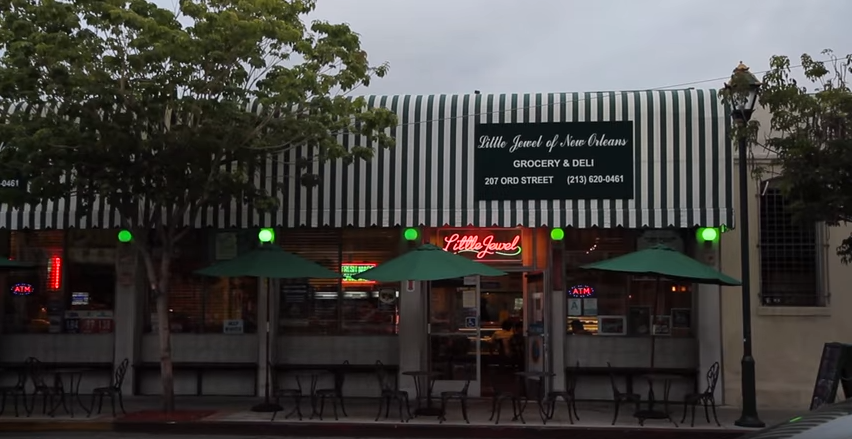Last summer, filmmaker Clara Ritger jumped on a train and took a food tour across the United States. For science.  Actually, it was for a documentary, which is close enough. But Ritger wasn’t restaurant-hopping across the country for fun. Her mission was somewhat more sobering: to examine the impact of food and restaurants on impoverished communities.
Actually, it was for a documentary, which is close enough. But Ritger wasn’t restaurant-hopping across the country for fun. Her mission was somewhat more sobering: to examine the impact of food and restaurants on impoverished communities.
A self-proclaimed “amateur cook and professional eater,” Ritger filmed her documentary web series as part of the 2015 Millennial Trains Project, for which she had to pitch an idea and crowdsource funds to support it. As one of the first few applicants to reach her crowdfunding goal, Ritger earned herself a spot on a train that took her to six cities in ten days and spent only five hours in each city. What she found became The Great American Cooking Story.
The plan was to visit two restaurants in every city and conduct interviews with their owners. The time constraints meant every tiny detail had to be meticulously prepared, though things rarely go according to plan. On the way from Los Angeles to Austin, for example, the train was delayed due to flooding, and Ritger ended up with only three hours in Austin. But it’s hard to put someone at ease when you have no more than two hours (optimistically) to introduce yourself, get the lay of the land, and ask your subject difficult questions about institutional inequality. “A good interview doesn’t feel like an interview anymore,” says Ritger. “You’re just getting somebody to talk about something they’re very comfortable talking about. That’s where you get the truth.”
To make the most of her time, Ritger says she kept the camera rolling as long as possible, and kept her senses attuned to the experience: the neighborhood’s sounds and smells and sights. It wasn’t until later, during the editing process, that she reviewed the film to find a coherent storyline. Despite the rushed process, however, Ritger emphasizes that her subjects were often very happy to tackle the difficult subject of revitalizing their neighborhoods. “They said, ‘No one ever comes to talk to me about this. People ask about my food, but not my social impact.’”
 And if her conversations with locals make anything clear, it’s that there are no easy answers to questions of revitalization and gentrification. Ritger found restaurants and business-owners largely through local journalism, the result being that she features individuals from all over the spectrum: newcomers, longtime residents, and those that are somewhere in-between. And in nearly every installment of The Great Cooking Story, residents and business-owners grapple with whether there is gentrification in their communities—whether that’s a good or bad thing, and whether it’s the result of institutional inequality or simply the natural flow of things.
And if her conversations with locals make anything clear, it’s that there are no easy answers to questions of revitalization and gentrification. Ritger found restaurants and business-owners largely through local journalism, the result being that she features individuals from all over the spectrum: newcomers, longtime residents, and those that are somewhere in-between. And in nearly every installment of The Great Cooking Story, residents and business-owners grapple with whether there is gentrification in their communities—whether that’s a good or bad thing, and whether it’s the result of institutional inequality or simply the natural flow of things.
Ritger explains that the main difference between cities was that they all occupied different stages of revitalization, so they all had different views of a restaurant’s responsibility toward its community. She points to San Antonio as an example. “I was really surprised by San Antonio because I expected there to be a little more revitalization, since they were the target of federal revitalization funds.” But upon arriving, Ritger realized not many of the funds actually reached the places they were meant to help, and revitalization was only in its early stages. Still, she adds that she has a lot of hope for that community. “They have the right mindset about what they have to do to help people.”
For Ritger, who works in corporate video production, The Great American Cooking Story was a passion project. “It was a really fulfilling experience that gave me the opportunity to test my abilities. The films that I’m interested in making are about important stories.” And she’s quick to point out that this is exactly why it’s important to have more women and minorities behind the camera. “We need more women and people of color to be creating because we do have different perspectives and experiences. Everyone picks up a camera and sees something different.”
Contributor: Celeste Moñtano



Comments (0)